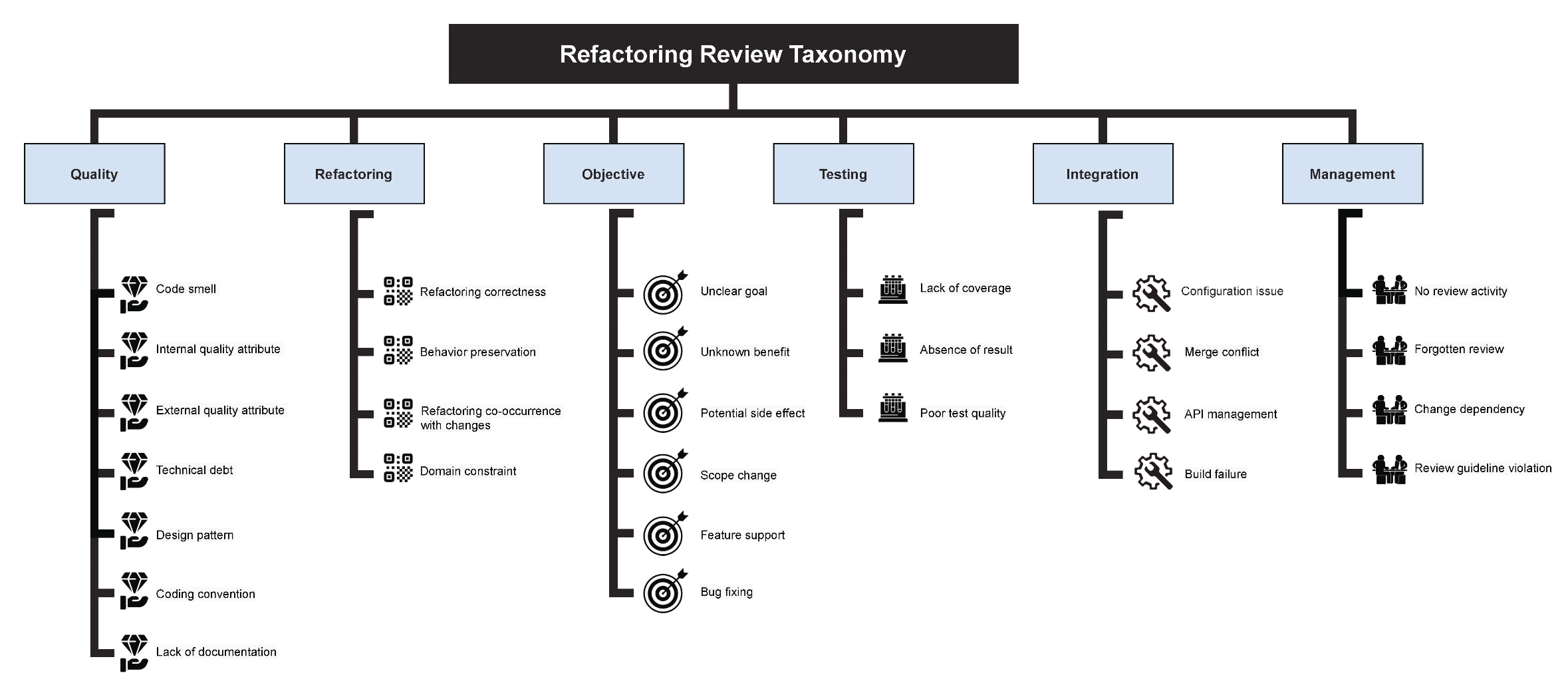Code Review for Refactoring
Reviewed by Greg Wilson / 2023-05-11
Keywords: Code Review, Refactoring
We did a large refactoring of the code in one of our internal applications earlier this year, and I'm going to spend a couple of hours later today refactoring some of the tests that have been written since. Like everything we do, it has to be reviewed by at least one other developer before being merged, so this paper on the criteria developers use when reviewing refactorings was a timely read. In particular, the taxonomy that the authors develop (shown in the diagram below, and described in detail in the paper) is a useful checklist of things to watch out for.
Eman Abdullah AlOmar, Moataz Chouchen, Mohamed Wiem Mkaouer, and Ali Ouni. Code review practices for refactoring changes: an empirical study on OpenStack. 2022. arXiv:2203.14404.
Modern code review is a widely used technique employed in both industrial and open-source projects to improve software quality, share knowledge, and ensure adherence to coding standards and guidelines. During code review, developers may discuss refactoring activities before merging code changes in the code base. To date, code review has been extensively studied to explore its general challenges, best practices and outcomes, and socio-technical aspects. However, little is known about how refactoring is being reviewed and what developers care about when they review refactored code. Hence, in this work, we present a quantitative and qualitative study to understand what are the main criteria developers rely on to develop a decision about accepting or rejecting a submitted refactored code, and what makes this process challenging. Through a case study of 11,010 refactoring and non-refactoring reviews spread across OpenStack open-source projects, we find that refactoring-related code reviews take significantly longer to be resolved in terms of code review efforts. Moreover, upon performing a thematic analysis on a significant sample of the refactoring code review discussions, we built a comprehensive taxonomy consisting of 28 refactoring review criteria. We envision our findings reaffirming the necessity of developing accurate and efficient tools and techniques that can assist developers in the review process in the presence of refactorings.
